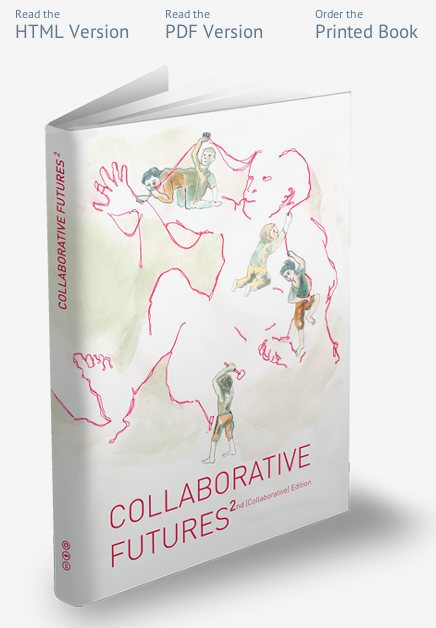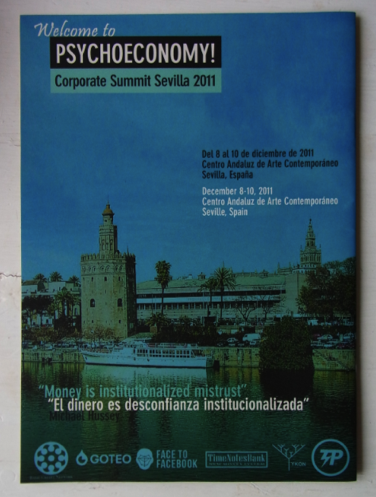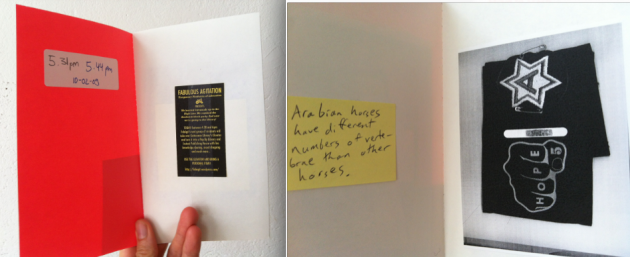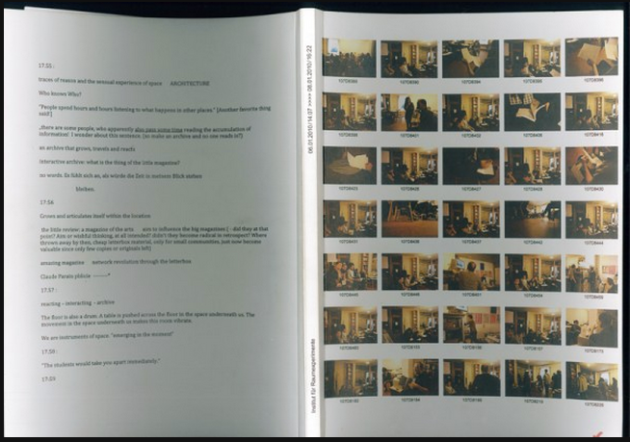Let’s look at a few rapid knowledge production initiatives. Let’s look at book sprints[1], experimental writing[2], and political declarations[3]. And for a little detour let’s include also a pop up library[4] (art project) and a book art project[5].
Speed seems to be key to all of these initiatives—a quick turn around with immediate outcome. To most, Volume is also important (how much has been written within only a short period of time). Often the works are conceived while writing together into a digital pad. Still the work sessions are hosted in one physical location where the participants can share thoughts and discuss live, in person. For the first three examples, the writing also serves as live protocoling the very event.
The act of writing is central to thinking, processing and manifesting. The editing is usually done after the event has taken place and done so remotely via digital communication. Speed, again: the brainstorms and heated discussions turn almost immediately into themes or chapters. Decisions about layout and structure are instant. Formatting is simple and straight forward and style is partially predetermined due to the limitation of the pad. What needs to be agreed upon before typing away are things like: “if it is a quote, we put the credit right after,” or “if you write something that is meant for other people to work on or consider introduce that part with ‘//’ and close with ‘\\’.”
The material is usually available in digital form online (mostly for free). Yet, it is in those sessions where the physical manifestation of the work done, becomes important once more. There are usually books or booklets published after the editing phase.
These events have something promotional about them as well. They can be viewed as a performance and since so compressed and compact, the writing process can even be filmed.
“This book was first created by 6 core collaborators, as an experimental five day Book Sprint in January 2010. Developed under the aegis of transmediale.10, this third publication in the festival’s parcours series resulted in the initiation of a new vocabulary on the forms, media and goals of collaborative practice.
In June 2010, the book was rewritten as a part of the Re:Group exhibition at Eyebeam, NY. This second edition invited three new collaborators to challenge the free culture sentiment underlying the original writing. The result is a deliberately multi-voiced tone pondering the merits and shortcomings of this new emerging ideology.”
“Psychoeconomy is a platform for discussion and artistic research that proposes an alternative approach on various global issues, taking advantage of the particularities for reflection and diffusion generated by the field of art. […] Psychoeconomy proposes the revision of citizen participation on a global scale in the resolution of conflicts in which citizenship as a hole is largely excluded from decision-making but certainly suffers the consequences.”
A declaration was written up (following a long discussion) in only two days.
How to pop up a library within a public library and install a temporary publishing house inside an unusual place. The Pop Up Library project uses the blank booklet as container to collect immediate knowledge.
Spontaneous Book: 06.01.2010 / 14:07 >>>> 08.01.2010 / 16:22
“The spontaneous book series seeks to engage in a group thinking and doing process that produces a result in a short period of time: capturing, processing and producing content simultaneously.
Spontaneous Book: 06.01.2010 / 14:07 >>>> 08.01.2010 / 16:22, on the occasion of a 3-day workshop that included exercises such as walks in public spaces, perception and time experiments, and studio visits.”
Resources:
http://collaborative-futures.org/
http://cargocollective.com/fabagit/Pop-Up-Library
http://www.raumexperimente.net/single/spontaneous-book-06-01-2010-1407-08-01-2010-1622/
http://www.psychoeconomy.org/
https://thebookthatexploded.wordpress.com/2013/07/11/heroic-real-estate-otter-of-the-21st-century-software-as-instant-editor/
—
Consider speed, volume
Consider manifestation of knowledge
Consider performance and writing as an event
Consider limitations of technology as design choice
Consider the blank book as container



